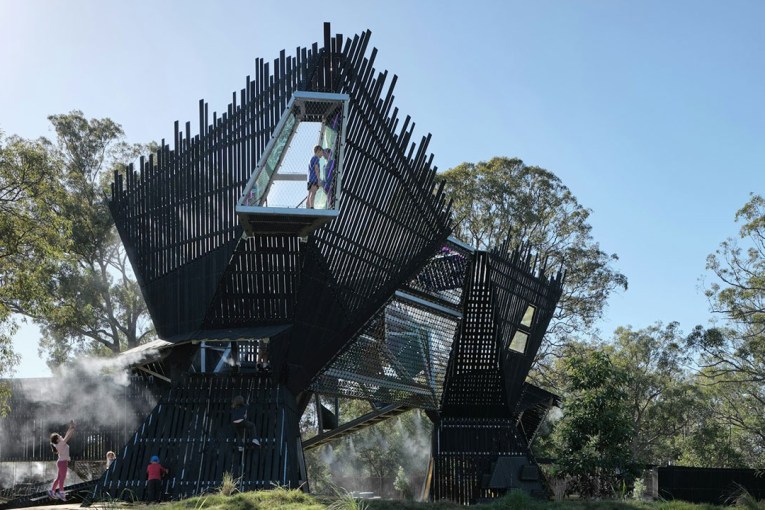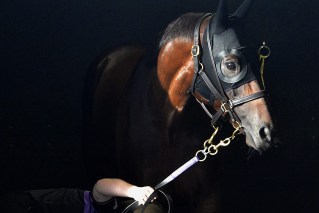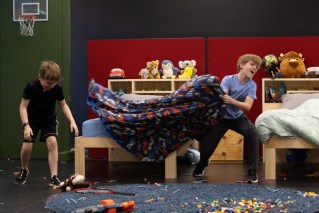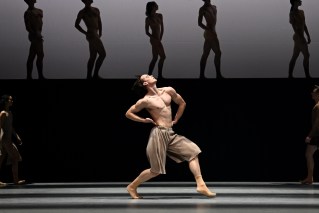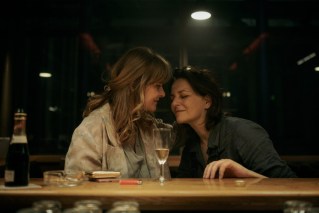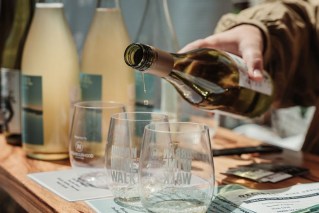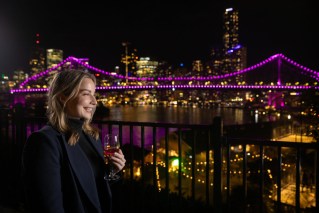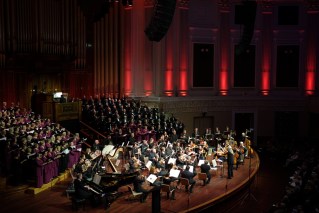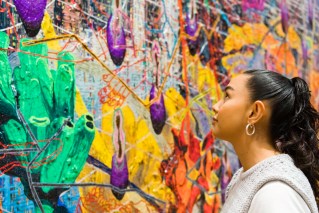Take one aria and see me in the morning: How opera can be good for your health
A new report has found opera is becoming more popular in Queensland. That’s a good thing, writes Phil Brown

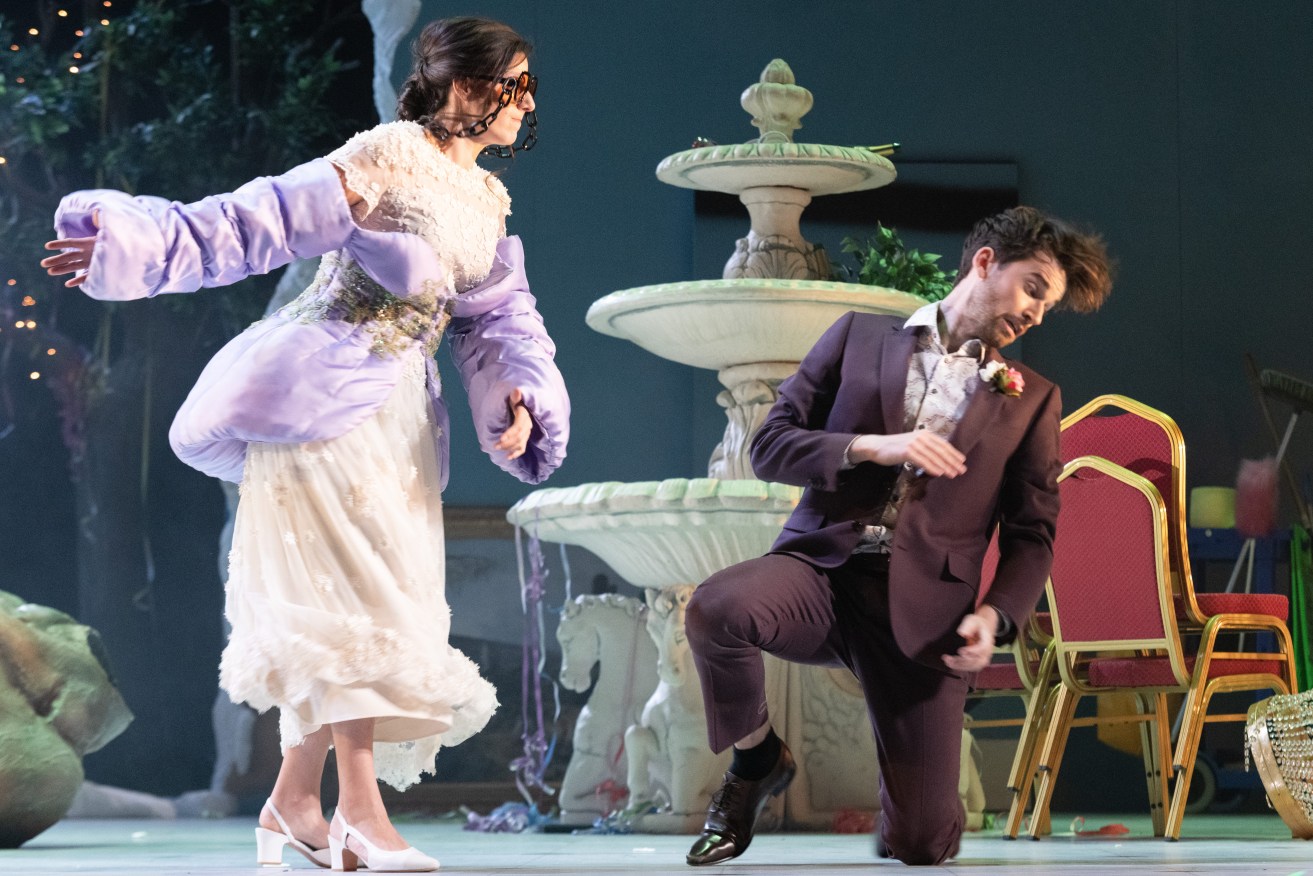
Not everyone loves the opera. Groucho Marx famously decried it in the classic 1935 film A Night at the Opera – “I told you to slow that nag down,” he told his carriage driver as they pulled up in front of the opera house. “On account of you I almost heard the opera.”
Jerry Seinfeld didn’t get it either. “I don’t like the opera,” he said. “What are they singing for? Who sings? You got something to say, say it.”
But the good news for Opera Queensland (OQ) is that more and more people are turning on to opera. Not enough, still, but OQ has an outreach program that is going from the mainstage of Brisbane to the far-flung regions of the state. Its recent Festival of Outback Opera and the touring production Lady Sings the Maroons reached thousands statewide.
On the weekend Lady Sings the Maroons wound up with a couple of shows at Roma Street Parklands.
At a VIP function prior to one performance OQ invited former Governor General of Australia, Dame Quentin Bryce, to launch The Economic and Social Benefits of Opera Queensland, a Deloitte Access Economics report commissioned by Opera Queensland to measure the impact this leading arts organization has on the state’s economy, social fabric and cultural identity.
Sounds like a racy read? Actually, it is.
OQ CEO and artistic director Patrick Nolan described it, tongue in cheek as “a real page turner” and said film rights were in the offing. A jolly jape.
People make all sorts of claims about the benefits of the arts but don’t often back that up with facts and figures but this report, which was a refreshing change of pace for the Deloitte staff according to partner and lead report author John O’Mahony, does that in a rather interesting fashion.
Using data from 2021 the report found that even in a Covid disrupted year OQ delivered around $6 million to the Queensland economy, created 247 jobs for artists and arts workers, delivered more than a quarter of its performances outside of Brisbane (regional success is the Holy Grail as anyone who watches Utopia knows) with 31 performances in regional and rural locations.
The company reached an audience of 149,645, did 14 collaborations with others arts companies and delivered $1.7 million in consumer value, a figure calculated as the value audiences receive through ticket prices and performance experience.
The report also identified OQ’s broader social contribution through accessible programming, industry collaboration and support, regional and remote sector development, community pride, cultural understanding and improved mental health.
Patrick Nolan said findings from the report celebrated and acknowledged the scale and scope of the work the organisation delivered.
“Opera is a deeply collaborative art form and this report recognises the energy, impact and
influence opera has on a vibrant and healthy arts sector, both socially and economically,” Nolan said.
“An Opera Queensland mainstage production requires the combined energies of so many different people – an orchestra of 60 to 80 people, a chorus of 30 to 50, a cast of seven to
eight principals, the design team, increasingly, visual artists, choreographers and dancers,
and let’s not forget the director. Our purpose in commissioning this report was not only to demonstrate the social and economic impacts of opera but illustrate its interconnectedness and vibrancy as an art form in terms of its resonance with audiences across Queensland.”
It’s difficult to quantify the actual experience of opera but in launching the report avid opera buff Dame Quentin Bryce expressed deep love for an art form which has “the power to reach into our hearts and minds, touching every emotion, each one of our senses”.
“Yes, my friends, opera has everything,” Dame Quentin said.
This proud Queenslander said her late husband Michael Bryce noted that she always managed to mention her little outback home town of Ilfracombe in her speeches. True to form she talked about how her mother brought her and her sisters “from our little town Ilfracombe in our childhood years to see opera, ballet, and theatre at Her Majesty’s in Brisbane.”
She lamented that more people hadn’t seen Opera Queensland’s Macbeth at QPAC earlier this year and I agree with her because it was a world class production that only featured two performances. It’s expensive putting on opera as Patrick Nolan pointed out.
But looking at the the Deloitte Access Economics report it is worthwhile in more ways than one, particularly with 2032 Olympic and Paralympic Games set to shine the spotlight on Brisbane. “Summer games hosts show that sporting cities can also be great opera cities” the report states.
“Every successful Olympic and Paralympic Games city in the lead up to Brisbane 2032 has been a major opera city too. In each host city the local opera company annually performed at least three mainstage productions except Rio, which was not viewed as a success.”
But Barcelona, Atlanta, Sydney, Athens, Beijing, London and Tokyo all staged operas and future Olympic cities Paris and Los Angeles will have mainstage opera productions as part of their cultural programs and OQ is aiming to do the same.
Quentin Bryce’s cri de Coeur is that we should all support our state opera company and she stressed that opera was accessible to everyone.
Of course some Queenslanders have never been. OQ wants to change that with its ambitious and wide-ranging program and it has plenty more to come this year including two major productions – Mozart’s Cosi fan tutte in August and Verdi’s AIDA, a co-production with Opera Australia, in December.
I love Groucho Marx and Jerry Seinfeld but I submit that they were wrong about opera.
